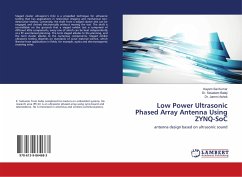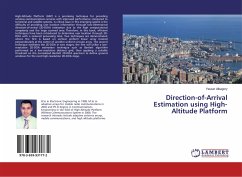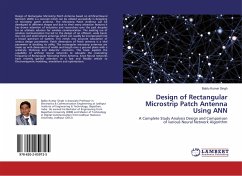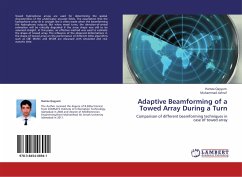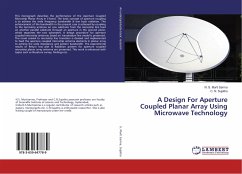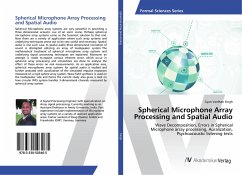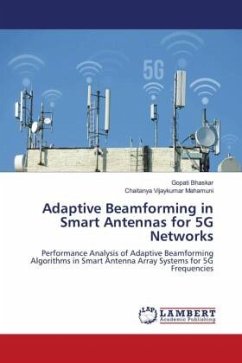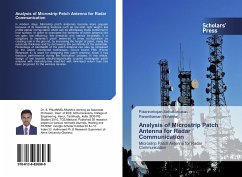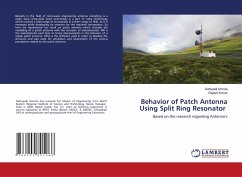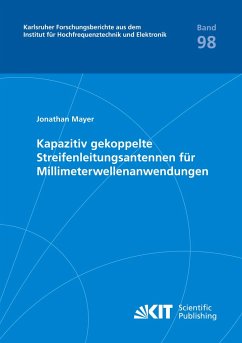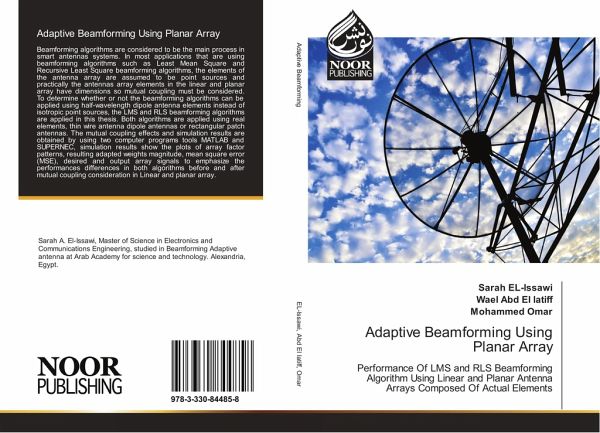
Adaptive Beamforming Using Planar Array
Performance Of LMS and RLS Beamforming Algorithm Using Linear and Planar Antenna Arrays Composed Of Actual Elements
Versandkostenfrei!
Versandfertig in 6-10 Tagen
37,99 €
inkl. MwSt.

PAYBACK Punkte
19 °P sammeln!
Beamforming algorithms are considered to be the main process in smart antennas systems. In most applications that are using beamforming algorithms such as Least Mean Square and Recursive Least Square beamforming algorithms, the elements of the antenna array are assumed to be point sources and practically the antennas array elements in the linear and planar array have dimensions so mutual coupling must be considered. To determine whether or not the beamforming algorithms can be applied using half-wavelength dipole antenna elements instead of isotropic point sources, the LMS and RLS beamforming ...
Beamforming algorithms are considered to be the main process in smart antennas systems. In most applications that are using beamforming algorithms such as Least Mean Square and Recursive Least Square beamforming algorithms, the elements of the antenna array are assumed to be point sources and practically the antennas array elements in the linear and planar array have dimensions so mutual coupling must be considered. To determine whether or not the beamforming algorithms can be applied using half-wavelength dipole antenna elements instead of isotropic point sources, the LMS and RLS beamforming algorithms are applied in this thesis. Both algorithms are applied using real elements, thin wire antenna dipole antennas or rectangular patch antennas. The mutual coupling effects and simulation results are obtained by using two computer programs tools MATLAB and SUPERNEC, simulation results show the plots of array factor patterns, resulting adapted weights magnitude, mean square error (MSE), desired and output array signals to emphasize the performances differences in both algorithms before and after mutual coupling consideration in Linear and planar array.



